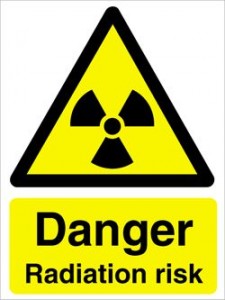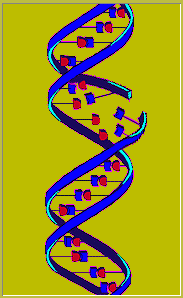Radiation Effects
AS EXPOSER INCREASES YOUR RISK INCREASES
– Cancer
– Changes to DNA
– Severe Burns
– Premature aging
– Long term damage to organs
– Fetus and Children – mental retardation/mutation
While most people would consider cancer to be the main health effect of radiation exposure there are a few others. Radiation exposure can cause changes to DNA, severe burns, premature aging and long term damage to organs. Fetuses and children are the most vulnerable to radiation exposure and can suffer from some of the worst effects during their growth into adults.
Upon first exposure the most common health effect is burning to the skin. Severe burns can lead to long term scarring and deformity. The burns can also lead to skin cancer mutating from the damaged cells.
One of the most severe effects is on genetics. Radiation can alter DNA and even affect the genes that a person passed down. Teragenetics is where there are harmful effects on the health of fetal genetics. When the genetics of a fetus are affected it can lead to mental retardation and mutations. Biological Effects of Ionising Radiation VII report from the US National Academy of Sciences (BEIR VII) report shows an abundance of evidence that there is no exposure to ionising radiation that is risk-free. As you expose increases your risk increases.
The BEIR VII estimates that each 1 mSv of radiation is associated with an elevated risk of solid cancer (cancers other than leukemia) of about 1 in 10,000. Also there is an increased risk of leukemia of about 1 in 100,000 and a 1 in 17,500 increased risk of cancer death.
Generally radiation protection standards are based on adult males and it is important to remember that risk levels vary based on the individual. For infants, under 1 year of age, the radiation-related cancer risk is 3 to 4 times higher than for adults and female infants are twice as susceptible as male infants.
Radiation can cause premature aging in people moderately affected by radiation. People may lose hair, have problems with their organs and suffer from age related illnesses earlier in life
The most predominant effect from radiation is cancer. Cancer can be caused by burns to the skin as well as caused in the lungs by inhalation of radioactive particles. Another way in which it caused cancer, through more severe exposure, is by damaging internal organs. Hand held radiation monitors don’t detect any inhaled plutonium particles, which can get lodged in the lungs resulting in long-term damage.
Radiation alters genetics slightly to create cancers in the body. It does this by deleting sections from DNA. The alteration can either destroy the cell or cause cancers to form during its replication.
In many cases the body can begin to remove damage caused to the cells. It will either repair damaged cells or cause them to die to prevent harmful mutations from spreading. Sometimes cells exposed to radiation will suffer no effects and will continue to function as normal. Cells can also start to replicate out of control in the form of cancer.
Some health effects are immediate and others take years to manifest. It is not readily apparent whether someone may be suffering from radiation related illnesses. Practical knowledge is needed to reduce future negative health effects and reduce contamination from disasters like Fukushima.
http://www.epa.gov/radiation/understand/health_effects.html
http://theconversation.com/just-in-case-you-missed-it-heres-why-radiation-is-a-health-hazard-32
http://www.world-nuclear.org/info/Safety-and-Security/Radiation-and-Health/Nuclear-Radiation-and-Health-Effects/


